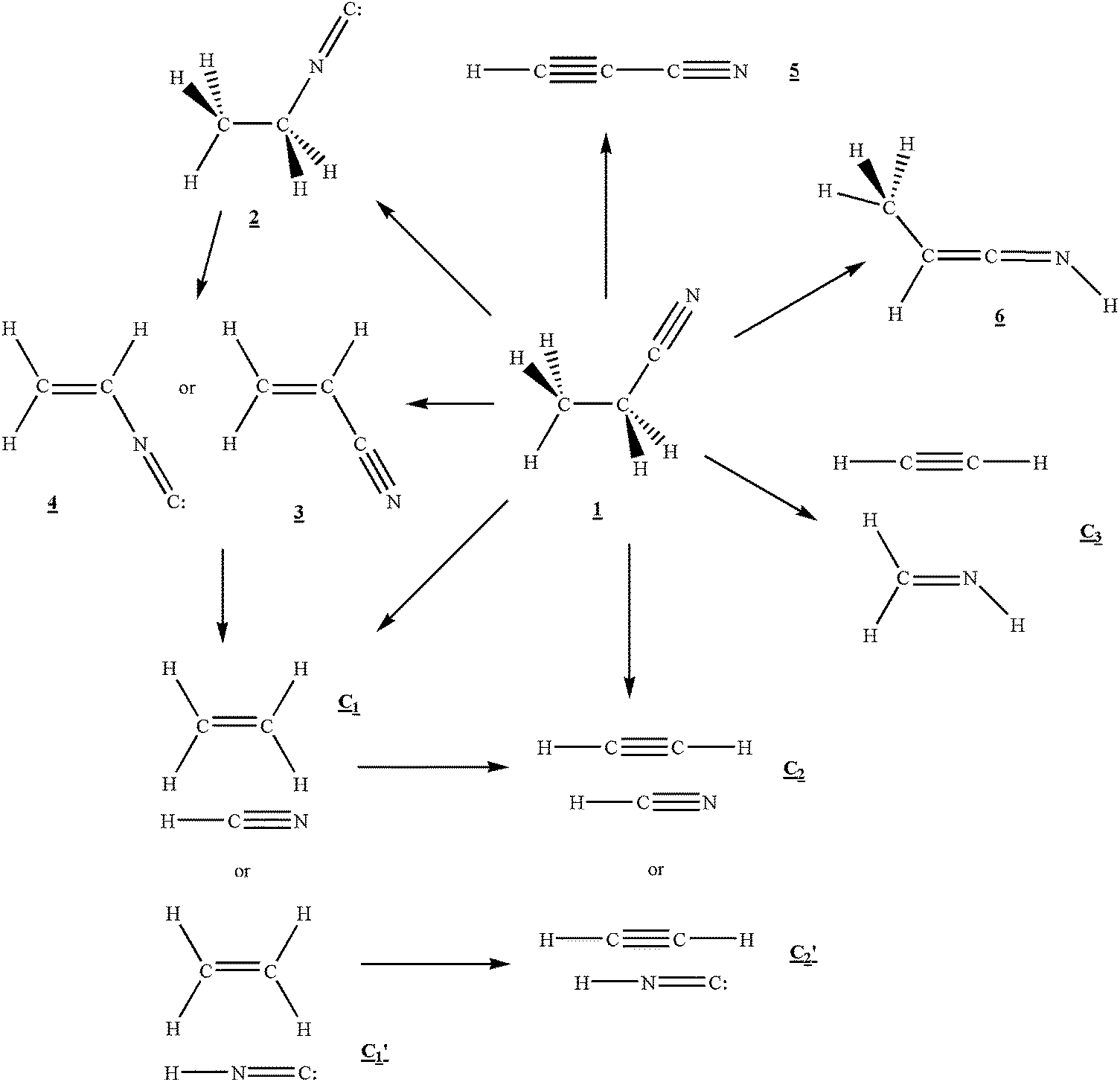A recent study of 193 nm photolysis of vinyl cyanide vcn in a room temperature reactor revealed a new pathway to hcccn by measuring the time evolution of the vibrational level population distribution vpd in a cpmmw spectrum.
Vinyl cyanide formation.
Precise determination of averaged molecular structure remains at the core of these new directions while broad spectral range and line intensities at 20 relative accuracy enable new chemical applications.
Vinyl cyanide found on titan aliens have at it.
Sodium cyanide is produced by treating hydrogen cyanide with sodium hydroxide.
The team detected it primarily at altitudes above 120 miles which makes sense because vinyl cyanide forms when sunlight and other charged particles strike the top of titan s nitrogenous sheath.
If membrane like structures could be formed by vinyl cyanide it would be an important step on the pathway to life on saturn s moon titan for the sake of their study the goddard team combined 11.
It is reactive and toxic at low doses.
Acrylonitrile is an organic compound with the formula ch2chcn.
The principal process used to manufacture cyanides is the andrussow process in which gaseous hydrogen cyanide is produced from methane and ammonia in the presence of oxygen and a platinum catalyst.
It is a colorless volatile liquid although commercial samples can be yellow due to impurities.
The compound might be suitable for cell membranes.
Our quest for extraterrestrial life may be closer to bearing fruit.
Vinyl cyanide 1 mmol ca ocl 2 0 8 mmol solvent.
It is an important monomer for the manufacture of useful plastics such as polyacrylonitrile.
Rationalized as outlin ed in the scheme 2.
As per recent findings published in science advances magazine scientists now have a definitive detection of vinyl cyanide.
In terms of its molecular structure it consists of a vinyl group linked to a nitrile.
Observed in tables 3 and 4 the formation of th e product can be.
Under standard conditions in the laboratory vinyl cyanide is a colorless liquid that is highly flammable and toxic.
It is commonly observed by radio astronomers in the hot cores of interstellar clouds which are the sites of the formation of massive stars and it has also been detected at lower abundance in cold interstellar clouds and in the envelopes of evolved carbon rich stars.
It has a pungent odor of garlic or onions.










